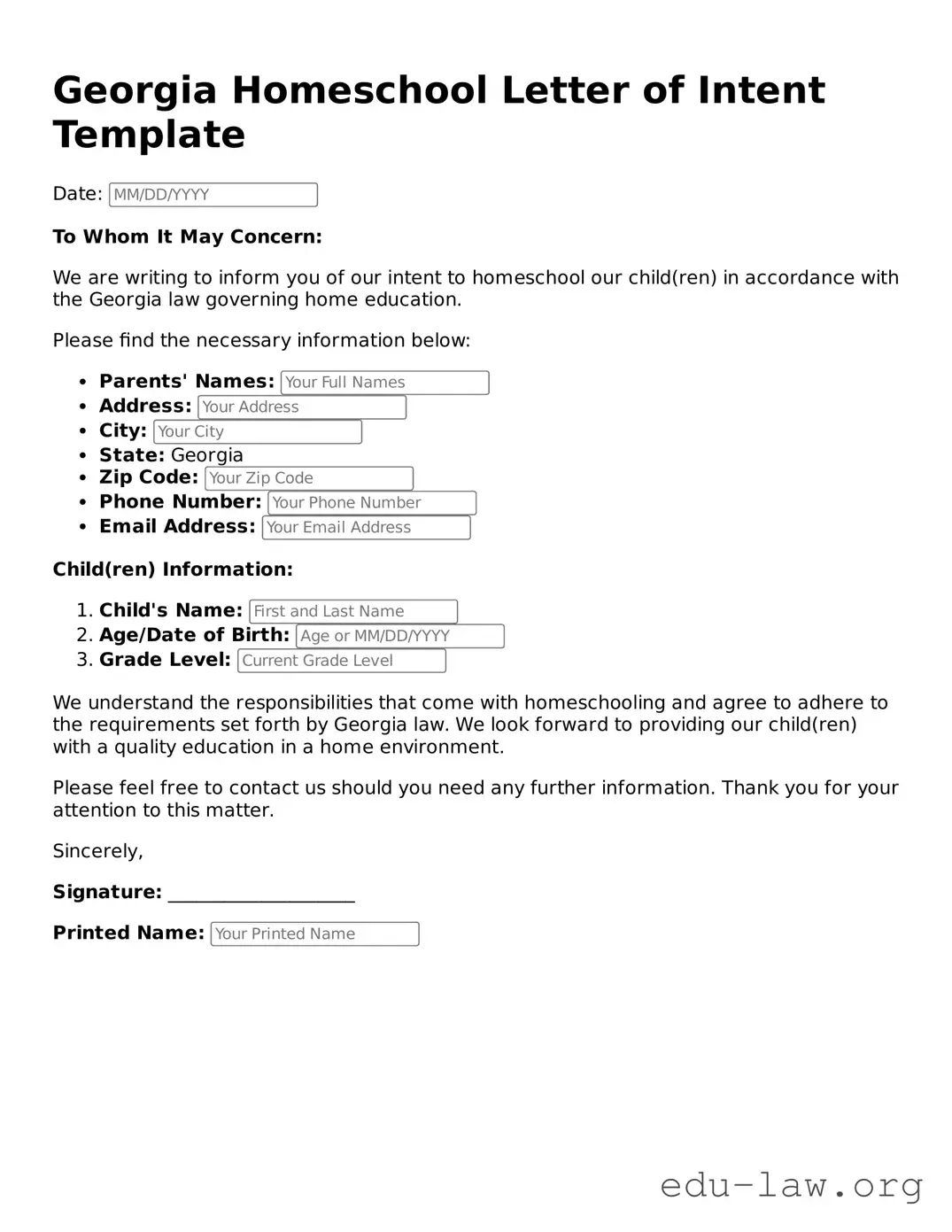Legal Homeschool Letter of Intent Template for Georgia
The Georgia Homeschool Letter of Intent form is an official document submitted to notify the state of a family's decision to educate their child at home. This form is a crucial step in establishing a legal homeschool curriculum in Georgia. By completing and filing this letter, parents take the first step toward embracing an individualized educational journey for their children.
